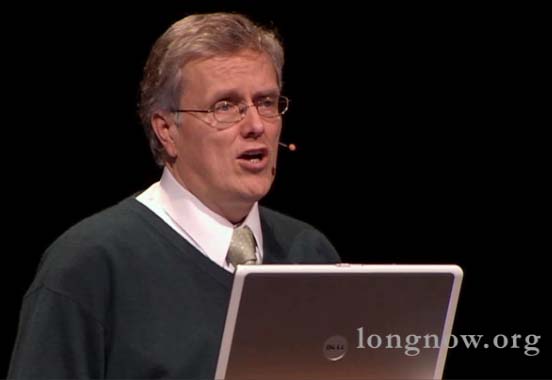
The Long Now Foundation on Tumblr

Geneva wheel prototype photo by Raphael Varieras
We recently launched a Long Now Tumblr blog where you will find even more about Long Now and related topics. If you’re unfamiliar with Tumblr, you don’t need to join the service to read the blog, just follow the link. But if you are on Tumblr, please follow and share the posts you enjoy.
Our Tumblr will complement what we publish on this blog. We’ll share a lot of Long Now images, information about our projects, fundamentals of what we do and why, and a look back at some highlights from our past.
Every Friday on Tumblr we will share audio from a past Seminar About Long-term Thinking. Our decade-old speaking series is building a compelling body of ideas about long-term thinking. It is curated and hosted by Stewart Brand, Long Now’s co-founder and Board President.

Philip Tetlock (screen shot from high-res Seminar video available to Long Now members)
This week we’ve chosen Philip Tetlock’s January 02007 talk from the archives. The research he shares in Why Foxes Are Better Forecasters Than Hedgehogs explores the confidence of forecasters, and it’s timely to revisit as we approach Daniel Kahneman‘s Seminar, just a few weeks away. We’ll tell you more about the relation between Tetlock and Kahneman’s work in our Seminar primer post next week.
The Tetlock Seminar begins with a mention of Long Bets, Long Now’s forum for competitive and meaningful long-term predictions. A good chance to remind you that Long Now will have a Long Bets table at the WorldFuture 2013 conference this weekend in Chicago. If you are there, look for us. Come by the table and make a Long Bet prediction for free.
Join our newsletter for the latest in long-term thinking
Subscribe